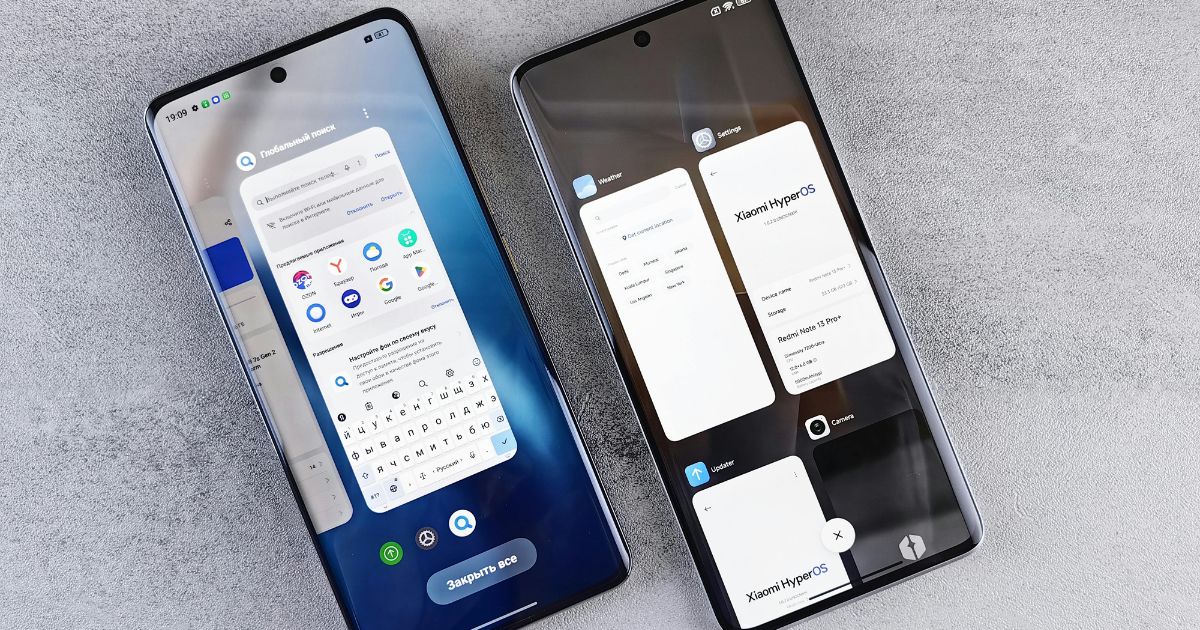In 2025, users expect fast, secure, and seamless experiences across a growing range of devices. For businesses looking to build or improve an Android app, understanding the development landscape is essential.
From new tools and frameworks to updated Google Play policies and emerging technologies like AI, there are many factors that influence how apps are designed, built, and maintained. Whether you're launching your first app or refining an existing one, knowing what works and what to avoid can make a big difference.
In this article, we share the most relevant Android app development tips and tricks for 2025. These insights are designed to help businesses make smarter decisions, avoid common pitfalls, and ultimately create apps that deliver real value to their users.
What is the Easiest Language to Develop Android Apps?
The easiest language to develop Android apps in 2025 is Kotlin, thanks to its streamlined syntax, official support from Google, and modern features that reduce boilerplate code. Kotlin is designed to interoperate seamlessly with Java, which means developers can gradually migrate legacy codebases or blend both languages within the same project. Its concise structure helps developers write cleaner code, making it easier to read, maintain, and debug.
One of Kotlin’s standout benefits is its smart compiler and null safety features, which significantly reduce the chances of runtime errors. These built-in tools improve app stability and performance while boosting developer productivity. Additionally, Kotlin’s support in Android Studio is fully mature, offering tools like auto-completion, code analysis, and quick fixes.
Kotlin also integrates effortlessly with Jetpack Compose, Google's modern toolkit for building native UIs, allowing for faster and more intuitive design. Overall, Kotlin is the go-to choice for streamlined, efficient Android app development today.
Android App Development Tips
In a world where users expect speed, security, and seamless experiences, the way Android apps are built continues to evolve. The right approach can mean the difference between an app that gets deleted and one that becomes a daily habit. Below are some of the most relevant and practical insights to help guide smarter decisions throughout the development journey.
Prioritize Robust Security
Protecting user data is more important than ever. Android 16, the latest version of the operating system in 2025, has made significant improvements to app security. One major update is its enhanced permissions system, which gives users more control over how their data is accessed and used. This includes temporary permissions and more granular privacy settings that allow users to fine-tune access on a case-by-case basis.
Another key feature of Android 16 is its improved biometric authentication. Users can now unlock apps or approve sensitive actions using facial recognition or fingerprint scanning with greater accuracy and security than they could previously.
At AppIt Ventures, we go a step further, by integrating data encryption and secure APIs into every app we develop. Encryption ensures that personal information like login credentials, health data, or financial details, is stored and transmitted securely. Secure APIs act as protected gateways that apps use to communicate with servers or third-party services. Together, these practices help ensure that apps not only comply with current regulations but also earn user trust, which is essential for long-term success.
Optimize Performance and Battery Life
A smooth, responsive app keeps users engaged, while slow load times and battery drain lead to frustration and uninstalls. That’s why performance optimization is a key priority for any Android app in 2025.
One of the tools developers now use to build faster and more efficient apps is Jetpack Compose. This modern UI toolkit reduces the complexity of designing user interfaces, which in turn helps the app run more efficiently. It eliminates unnecessary code and helps ensure that only what is needed is processed, saving both time and device resources.
Developers also rely on Android Studio’s profiling tools to spot and fix performance issues before an app ever hits the Play Store. These tools provide insight into CPU usage, memory consumption, and battery impact during real-time testing. While you don’t need to understand every technical detail, it’s helpful to know that these tools allow teams like AppIt Ventures to fine-tune your app’s performance and battery consumption.
By focusing on speed, responsiveness, and energy efficiency from the start, we help you to deliver an app that works beautifully across a wide range of devices, creating a better experience for your users and reducing negative reviews or early drop-offs.
Build Modern UIs with Jetpack Compose
First impressions count, and your app’s interface is often the first thing users notice. Jetpack Compose has revolutionized the way Android UIs are built, by making the process faster and more flexible. This toolkit allows developers to create modern, sleek, and responsive interfaces that automatically adapt to different screen sizes and device orientations.
What sets Jetpack Compose apart is that it allows for a more intuitive approach to designing screens. Rather than juggling multiple files and layers of code, developers can build everything in one place, which not only reduces errors but also speeds up development timelines. This is especially valuable when you need to make quick updates or roll out new features.
At AppIt Ventures, we use Jetpack Compose to bring your vision to life visually and functionally. Whether your app needs a clean corporate feel or a vibrant look geared toward younger audiences, we use this tool to create a polished, user-friendly experience that reflects your brand and goals.
Incorporate In-App Purchases and Subscriptions
Monetization remains a crucial part of mobile app strategy, and in 2025, in-app purchases and subscriptions are more streamlined than ever through the Google Play Billing Library. This updated system makes it easier for businesses to offer tiered services, premium content, or recurring billing directly through their apps.
Subscriptions have grown especially popular in apps that offer continued value over time, such as fitness platforms, educational tools, or digital publications. The 2025 updates to the billing library improve how subscription offers are presented to users, making it easier for them to understand what they’re getting and how much it costs.
AppIt Ventures specializes in helping businesses implement smart, scalable monetization models. Whether you want to offer a free version with optional upgrades or a full subscription-based model, we ensure the setup is seamless, secure, and user-friendly. Our team also helps track usage data and feedback so you can refine your offerings based on real insights.
By integrating in-app purchases correctly and ethically, you not only generate revenue but also build long-term customer relationships that grow with your business.
Adopt Agile Development with CI/CD
Agile development has become the go-to approach for delivering high-quality apps quickly, especially when working under tight timelines or needing to respond to user feedback on the fly.
Agile is not just about working fast. It’s about working smart in short, iterative cycles. This method allows development teams to release updates more frequently, test features as they go, and keep the project aligned with business goals throughout the process.
Part of what makes agile development effective today is the use of CI/CD pipelines. CI/CD stands for Continuous Integration and Continuous Delivery. These tools automate repetitive tasks like testing and deploying your app, saving time and reducing human error. Popular platforms like GitHub Actions and Firebase offer CI/CD features that help developers push new versions of your app to users quickly and reliably.
For business owners, this means faster turnaround times, fewer bugs in production, and the ability to adapt to market needs or user feedback without major delays. At AppIt Ventures, we integrate CI/CD from the start, giving clients the confidence that their app can grow, evolve, and stay ahead of the competition.
Ensure Accessibility Compliance
Creating an inclusive digital experience is no longer optional. In 2025, Google Play has continued to raise the bar on accessibility requirements for all apps published on the platform. These guidelines focus on making apps usable for people with disabilities, including those with visual, hearing, or motor impairments.
For example, screen reader support is a major requirement. This feature reads content aloud to users who are blind or have low vision. Other accessibility standards include proper text contrast, touch-friendly controls, and captions or transcripts for multimedia content.
Meeting these standards not only ensures compliance with Google Play policies but also expands your app’s reach to a broader audience. By building an app that everyone can use, you demonstrate social responsibility and increase your market potential.
Here is a screenshot of a list of accessibility suggestions provided by Google.

At AppIt Ventures, we design with accessibility in mind from day one. Our team conducts thorough accessibility audits and follows the latest best practices to make sure your app meets or exceeds Google’s expectations. It’s not just about checking a box; it’s about creating a better experience for everyone.
Leverage AI and ML Features
Artificial intelligence (AI) and machine (ML) learning are practical tools that give Android apps a serious competitive edge. Google’s ML Kit, for instance, makes it easier than ever to integrate powerful AI-driven features into mobile apps.
ML Kit offers a variety of pre-built solutions such as text recognition, image labeling, barcode scanning, and even on-device translation. One common use case is image recognition, which can help users identify products, scan documents, or even enhance photos automatically. These capabilities run efficiently on modern Android devices and are available without needing to build custom AI models from scratch.
From a business perspective, using AI and ML can add a ‘wow’ factor to your app, automate complex tasks, and improve the overall user experience. AppIt Ventures helps clients harness these technologies in a way that’s practical, cost-effective, and aligned with real user needs. Whether it’s improving personalization or offering intelligent automation, AI can make your app smarter and more useful.
Test Across Diverse Devices
Android users are not all using the same type of phone. In fact, they may not be using a phone at all. With the rise of foldable devices, smartwatches, and 5G-enabled tablets, your app needs to work flawlessly across a wide range of form factors and network environments.
This is why cross-device testing is critical. Foldable devices, for example, introduce challenges like screen continuity and layout changes as the device folds and unfolds. Wearables require simplified interfaces and low power consumption. Devices running on high-speed 5G networks may demand faster response times, while users on slower networks will expect graceful fallbacks.
Here is a simple example of one way that an app can test well on one screen size but fail on another.

At AppIt Ventures, we perform rigorous multi-device testing to ensure your app delivers a consistent and polished experience no matter where it’s used. We use emulators, real devices, and cloud testing platforms to cover as many user scenarios as possible. This process helps minimize bugs, improve usability, and reduce the chance of negative reviews due to compatibility issues.
Stay Compliant with Google Play Policies
In 2025, Google Play’s app review process is stricter than ever. With growing concerns around privacy, advertising transparency, and user safety, it’s essential for businesses to ensure their apps meet every guideline before submission.
Recent updates focus heavily on how apps collect and use personal data. For example, you must clearly disclose what information you collect, how it will be used, and whether it’s shared with third parties. You also need to obtain proper consent from users. Failure to do this can result in your app being delayed or rejected entirely.
Ads are another area of concern. Google now requires that apps display ads in a non-intrusive manner, provide clear labeling, and offer options for users to control their ad experience. Apps that mislead users with hidden ads or excessive tracking are more likely to be removed from the store.
Navigating these rules can be complex, but AppIt Ventures takes the guesswork out of the process. We stay updated on the latest policy changes and ensure your app complies with every requirement from day one. This reduces the risk of launch delays and protects your brand reputation.
What is the Best Way to Develop an Android App?
The best way to develop an Android app in 2025 is by combining the right tools, smart methodology, and experienced guidance. At AppIt, we start with Android Studio, the official integrated development environment for Android. It offers everything from code editing to performance testing in one place. Using Kotlin, Google’s preferred language for Android development, we’re able to write clean, efficient code that reduces bugs and speeds up the development process.
We also follow an agile development approach, which allows for flexibility, faster delivery, and regular input throughout the project. This means your app can evolve with your business goals and user feedback, ensuring a better end product.
What truly sets a successful app apart is the strategy behind it. With years of experience, AppIt is more than just a development partner. We help solve complex problems, offer creative solutions, and tailor every feature to match your unique audience and business objectives.
If you're looking to build an Android app that is scalable, secure, and designed for success, reach out to AppIt today. We’re ready to help you bring your vision to life with a solution that works right from the start.








